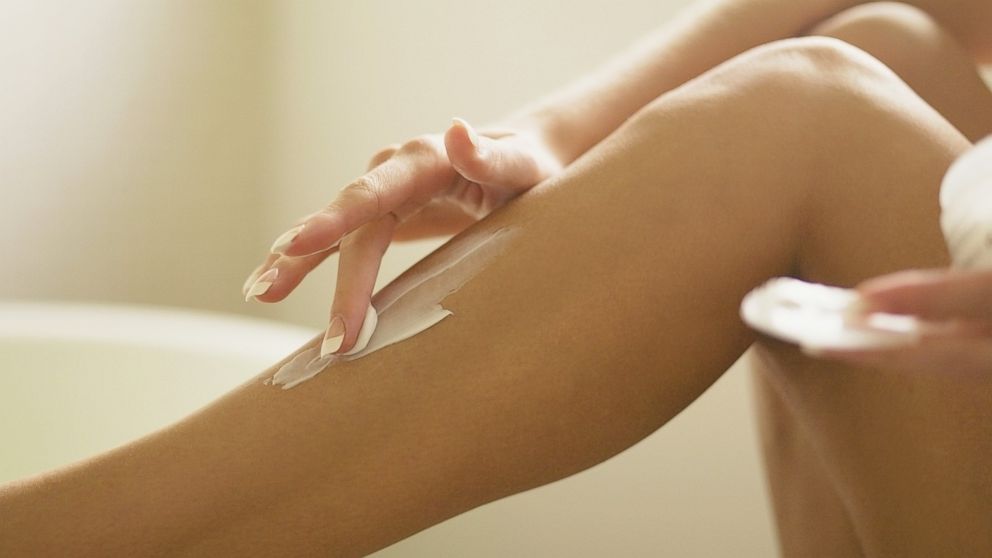How To Winter-Proof Your Skin Right Now
Keep your skin healthy this winter using these tricks.

Nov. 16, 2013— -- intro:It's easy to romanticize the holiday season. You picture yourself looking rosy, with perfectly tousled hair peeking out from that new cashmere hat. The reality? Winter skin can be anything but cute. Flaky skin, chapped lips, itchy nose–you know the drill. Not only do winter skin bummers mess with those snow goddess fantasies, but they can also compromise your health.
"Skin that's dry, cracked, or irritated is vulnerable to bacteria and infection," says Cameron Rokhsar, MD, a cosmetic dermatologist who practices in New York. The good news is that by taking action in the fall, you can bypass winter skin problems altogether. Read on for three principles to keep your skin flake-free all season long.
Winter Skin Annoyances, Solved
quicklist: 1 category:How To Winter-Proof Your Skintitle:Be proactiveurl:text:When you let your skin dry out, lotions and creams can replace some of the lost moisture, but a lot of the damage has already been done. A better solution? Minimize irritation from the get-go. Dr. Rokhsar mapped out a three-pronged approach to upgrade your routine before problems get out of hand.
First, choose a cleanser that will nourish the skin as it cleanses. This means steering clear of foaming face washes and alcohol-based toners. "Instead, look for antioxidant-rich products that contain ingredients like tocopherol (vitamin E), lipoic acid, and CoQ enzymes," he says. On that note, be conscious of what's in the products you're using. If you need to glob on moisturizer just to have it sink in, cheap or drying ingredients could be to blame. In addition to the above ingredients, Dr. Rokhsar recommends looking for petrolatum, mineral oil, linoleic acid, ceramides, dimethicone, or glycerin.
Finally, be sure to exfoliate! Exfoliation should be a priority year round, but it's especially important in the winter, when it's easier for dead skin cells to build up, resulting in a dull complexion and potential breakouts. For best results, use an exfoliator with ingredients like alpha-hydroxy acids or coQ enzymes, which encourage cell turnover and circulation. To speed things up a bit, you can lightly buff away dead cells with a skin brush, or even a soft toothbrush.
How to Fix the 9 Worst Signs of Aging
quicklist: 2 category:How To Winter-Proof Your Skintitle:There's No One-Size-Fits-All Approachurl:text:A nourishing cleanser, quality ingredients, and regular exfoliation will benefit everyone, but these principles should be tweaked and personalized according to your skin type and lifestyle. With this in mind, Dr. Rokshar offered up some tips for tackling specific concerns.
For those battling breakouts: It can be difficult to maintain an anti-acne regimen without stripping the skin of all its moisture (and causing further damage.) Over-treating acne-prone skin will leave it parched, which can actually send oil glands into overdrive. To achieve balance, Dr. Rokhsar recommends going easy on products made with harsh ingredients like benzoyl peroxide. Plus, certain fabrics worn in the winter (mostly synthetic or even wool) may irritate skin and cause breakouts. So be careful with that big cozy scarf!
12 Foods That Have More Vitamin C Than Oranges
For those with wrinkle worries: As with acne treatments, many of the ingredients in anti-aging products can be excessively drying. If you use a topical formula containing tretinoin, such as Retin-A, Dr. Rokhsar advises scaling back to a few nights a week. "You can also wait 10 minutes and apply a moisturizer after you apply the Retin-A in the evening to prevent flaking or overdrying," he says.
For outdoor sports enthusiasts: Gale-force winds are par for the course for winter athletes, but that doesn't mean runners and skiiers should resign themselves to weather-beaten skin. As a first line of attack, try to keep as much of your skin covered as possible with hats, scarves, and gloves. For extra protection, Dr. Rokhsar recommends applying an emollient like Aquaphor to your feet, and a heavy-duty cream to your face to lock moisture in. And of course, sunscreen! UVA and UVB rays can be damaging at any time of year, so don't slack on sun protection.
quicklist: 3category:How To Winter-Proof Your Skintitle:Step Away From The Beauty Counterurl:text:Lotions and potions are important, but they're jut one piece of the skincare puzzle. To really protect your pores, you have to attack the problem from every conceivable angle–starting with your insides. What we put in our bodies can make all the difference when it comes to our skin. So for a glowy, healthy looking complexion, Dr. Rokshar recommends eating foods rich in omega-3 fatty acids and antioxidants (and of course, making sure that you're drinking enough water.) Antioxidant rich foods like pomegranates, citrus, and dark leafy greens are in peak season at this time of year, so take advantage!
Next, turn towards your external surroundings. You may not be able to stop whipping winds and freezing temps outside, but you can definitely control the climate at home. Dry, indoor heat is a major moisture sucker, so resist the temptation to crank the thermostat up–your pores (and utility bills) will thank you. Dr. Rokhsar also recommends investing in a humidifier.
"Begin using a humidifier in your home once the indoor relative humidity drops below 60%, especially throughout your night's sleep, your skin will be able to withhold the moisture that indoor-heating systems suck out," he says. It may seem counterproductive, but hot water can be just as dehydrating as hot air. To mitigate the drying effect of a hot shower, try to keep your water temperature below 98.6 degrees. And if you really can't resist a scalding shower session, aim to cap it at five minutes to minimize the damage.